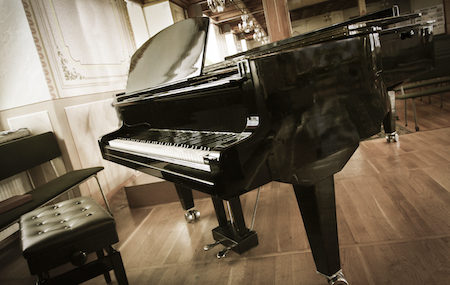Very few things are “buy it and forget it.” Instead, if you expect longevity and years of enjoyment, you’ll have to perform maintenance to keep it running well.
Pianos are no different.
Piano maintenance is an important aspect of owning a piano. Grand and upright pianos both need regular maintenance to keep your instrument in good condition and ensure that it produces the best sound.
What does that involve?
Tuning
Regular tuning is necessary to keep your piano in good pitch. How often depends on the piano’s age, usage, and environmental conditions. This is a process you’ll often find talked about online. There are lots of DIY manuals and videos, but keep in mind that a good piano tuner has years of practical experience. It’s something you feel as much as it is a learning process.
Cleaning
Piano keys can get dirty and sticky over time, affecting the feel and response of the instrument. Regular cleaning with a soft, damp cloth is necessary to keep the keys clean. Additionally, the soundboard, strings, and other parts of the piano should be cleaned periodically. This is a careful process – you don’t want moisture to come in contact with any of the delicate parts. Harmful chemicals can also ruin the finish as well as hinder playability. Ask one of our sales associates for more details on the perfect cleaning methods.
Humidity control
Pianos are sensitive to changes in humidity, which can affect their sound and stability. Maintaining a consistent humidity level is essential to prevent damage. Pay attention to room conditions, and consider using a humidifier in dry weather and a dehumidifier in humid weather to control the environment, if necessary.
Regulation
Regulation refers to adjusting the piano’s action, hammers, pedals, and other mechanical components. This should be done by a professional piano technician at least once every five years, or more frequently if necessary. Regulation ensures that the piano plays smoothly and produces the best sound. You can talk with the professional who tunes your piano for more information.
Repairs
Like any functional asset you own, it will occasionally need repair due to normal wear and tear, or accidental damage. Repairs can include fixing broken strings, repairing action components, or fixing cracks in the soundboard. It’s critical to address repairs promptly to prevent further damage.
Polishing
Piano finishes can become dull over time. Polishing the piano’s finish helps to maintain its beauty and shine. Yet beware of chemical cleaners. Many of them can dull the finish. You can chat with one of our associates about the best way to keep your piano shining year after year.
Ready to make your dreams come true by owning a piano this year? Proper piano maintenance is crucial to ensure that your piano stays in good condition and produces the best sound possible.
Taking care of your instrument ensures that it lasts and provides you with many years of enjoyment.


